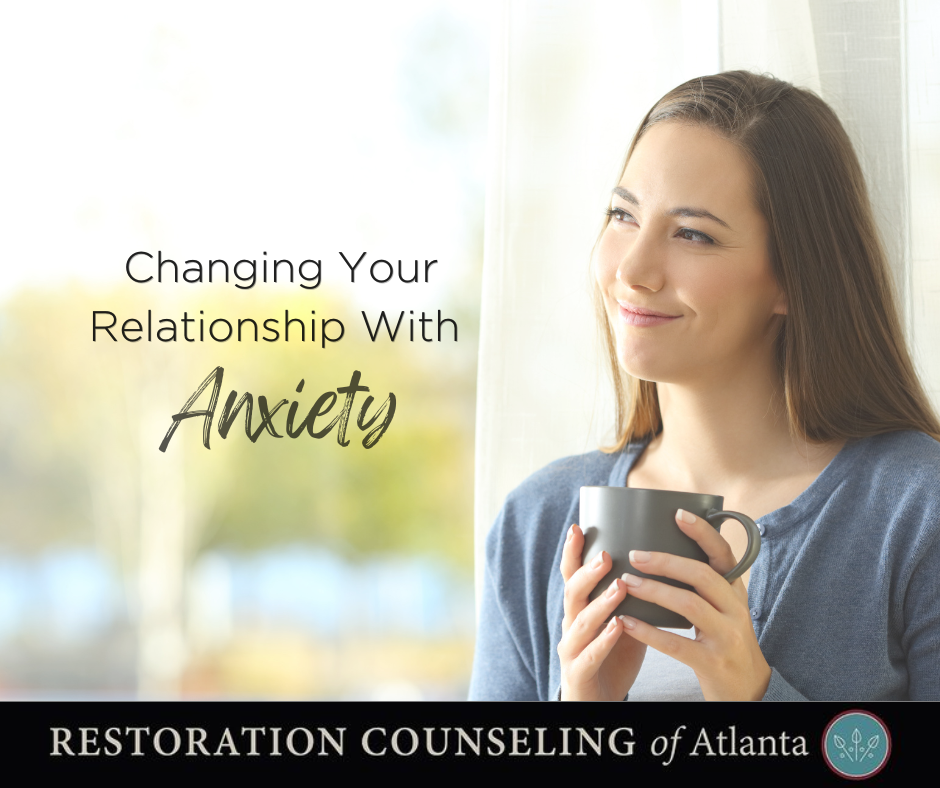Anxiety-How do you respond?
How do you talk to yourself when you feel anxious? Do you distract yourself or avoid it, or do you try and talk about it? Many of us have a challenging relationship with anxiety, which is actually a natural part of life. We often feel anxious when we experience something new or when changes occur. We tell ourselves that anxiety is the problem, and we must keep ourselves from feeling it. However, anxiety is not the “problem.” It is usually our narrative around the feelings and thoughts that become crippling. As a result, we may get tripped up.
Ask yourself this question: What narrative do I tell myself when I feel anxious? If your answer is one of defensiveness and criticism, then you need a new narrative. If the narrative is one of openness and curiosity, then you will move through the anxiety a lot faster.
Emotions are important.
Emotions are meant to be felt and moved through. When anxiety is kept underneath the surface, then it leads to panic attacks and fear of fear. When someone works hard to avoid what makes them anxious, they are giving that thing more power over them. Trying not to think about something makes you think about it even more. There is a lot of evidence that exposing yourself to what you are afraid of will temporarily increase short-term anxiety, but it will provide greater relief in the long run.
How can I change?
You can either sit in your anxiety, act on it, or move away from it The antidote to anxiety is truth. Anxiety increases when you don’t know what you want or need. Separate from the anxiety and say to yourself, “I’m noticing I’m feeling anxious about this. What is my narrative around what is happening right now?” Give yourself some space from what you are thinking about. If you push down the thoughts and feelings, it will only create more anxiety. Anxiety is an indicator that something is going on underneath the surface. Naming your feelings can bring the intensity down by 50%.
Anxiety can help you.
Understanding your anxiety triggers can help you know yourself. Next time that you feel anxious, reframe the anxiety. Start to think of it as a learning opportunity to understand yourself more. Think of it as a chance to understand what information you can gain, and become more curious. Is there a need that is lacking? Is there something in your life that feels out of control? It is an illusion to believe that if you gain more control, then it will satisfy. However, control is an insatiable desire. Control isolates us and creates more anxiety. What we really need is connection instead of control. Anxiety is often about desiring control and needing connection. When you start to view anxiety as an opportunity to learn more about yourself and how you approach situations, then you will start to see it differently and change your relationship with it. It will free you from the fear of anxiety. Anxiety can become a gift that allows us closer to others and to God.
If you are struggling with anxiety, please contact us. We care and are here to help.

by Mead Reed, MA, LMFT, LPC
mead@restorationcounselingatl.com, ext. 115
Roswell and Buckhead Locations
Mead counsels adults, couples, and families struggling with anxiety, depression, communication difficulties, grief, parenting, and other life issues. She is a PREPARE/ENRICH facilitator and also works with premarital couples. Mead is passionate about teaching clients to explore their life story to understand how it has shaped who they are today. She provides a safe environment for clients to name their feelings healthily, allowing for redemption and freedom.

